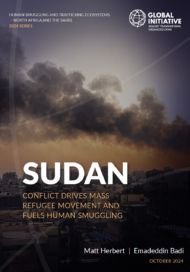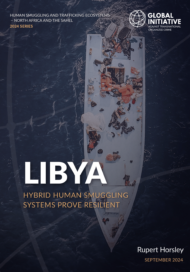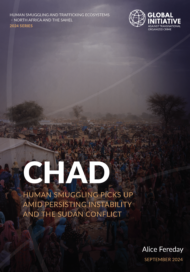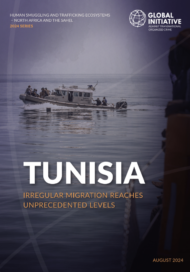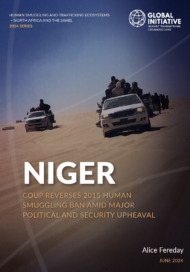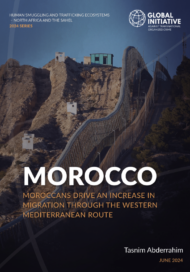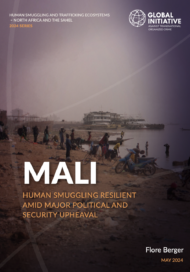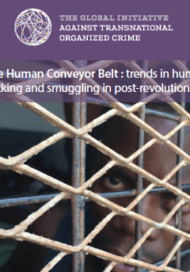Event Details
Where
WEBINAR - Zoom
War, Refugees and Geopolitics – Trends Shaping Human Smuggling Ecosystems in Chad and Sudan
This event will explore changes in human smuggling and migration dynamics in Sudan and Chad in 2023 and 2024, particularly how the April 2023 conflict in Sudan has caused significant displacement and affected smuggling patterns. It will also discuss the impacts of increased refugee movement through North Africa and the Sahel.
Posted on 07 Oct 2024
North Africa and the Sahel have been increasingly important regions for migrant movement, human smuggling and human trafficking since the late 1990s. The regions currently comprise key corridors for migrants from Sub-Saharan Africa, South Asia and the Middle East transiting towards Europe, as well as important origin countries in their own right.
Human smuggling in the regions is also highly dynamic, with the post-COVID 19 period recording substantial shifts in the size and direction of migratory flows and smuggling activity. These, in turn, have been driven by substantial political, economic and security changes in these regions, including internal conflict, political instability, and economic insecurity.
Since 2016, the GI-TOC has engaged in regular monitoring of the political economy of human smuggling and trafficking in North Africa and the Sahel, a process that was expanded and formalised in 2018 with the establishment of the North Africa and Sahel Observatory (NAS-Obs). This work has resulted in annual country reports focused on human smuggling and trafficking, as well as some cross regional or thematic reports.
The 2024 series covers country reports on Libya, Tunisia, Morocco, Mali, Niger, Chad and Sudan.
They chart the broader shifts currently underway in human smuggling through the two regions, which have seen hybrid smuggling surge in Libya, embarkations by foreign migrants rise in Tunisia, and Sudanese refugees increasing movement throughout North Africa and the Sahel. They also detail key political and security dynamics, including the worsening wars in Sudan and Mali, the unstable status quo in Libya, and the growth of political volatility across a number of countries in both regions.
